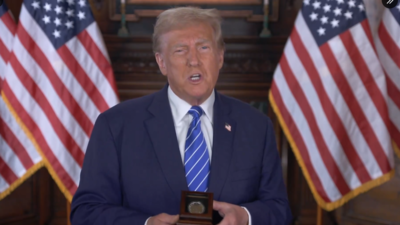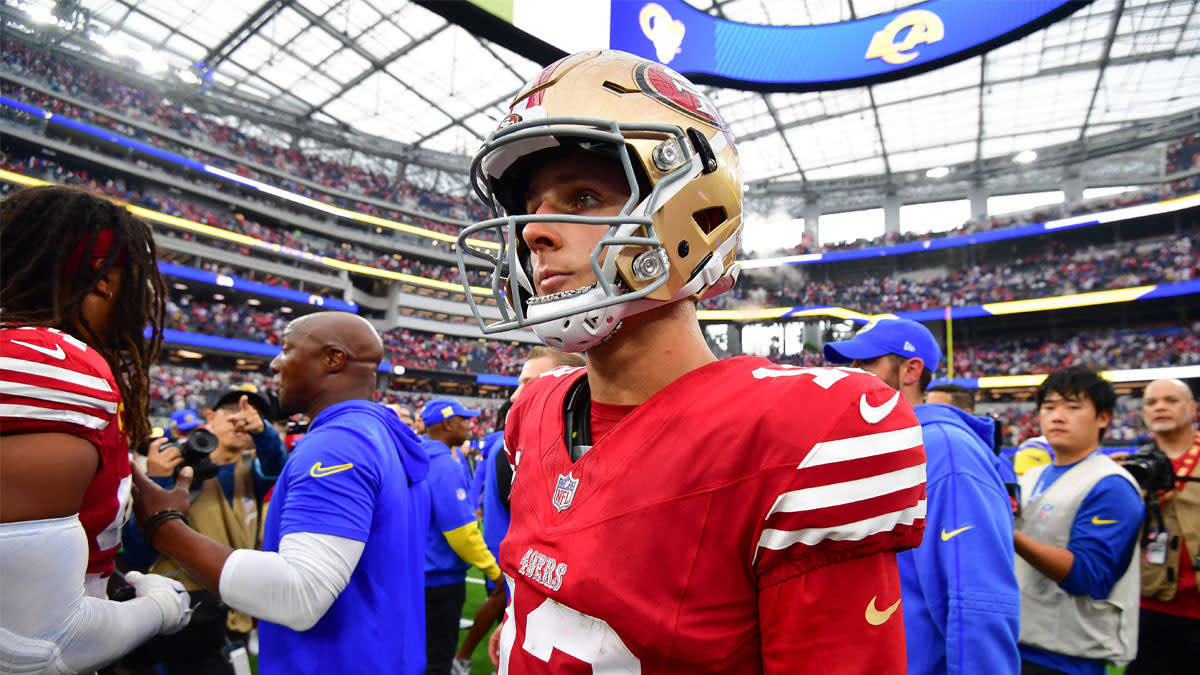Television is at its best when it surprises. That’s what the airing of the Democratic National Convention delivered. It was something unfamiliar and unexpected, though it was named often in the telecasts: joy.
It’s not a novel observation to write that “joy” has become a foreign notion in recent months—years, even. That is especially true when you think of what has become one of the greatest and most consequential byproducts of our 24/7 televised news cycle: We see and hear from our politicians. Constantly.

Lately, that’s been akin to being immersed in an around-the-clock horror movie, where audience participation is mandatory. We’ve even resigned to that being our new normal. So the Democratic National Convention, politics aside and just as a form of entertainment, seemed positively renegade.
It was a galvanizing event that rose to its cultural moment, one that understood its assignment: joy. By having that, the joy, as a mission statement, the convention was able to produce epic moments. Oprah’s ebullient speech (I still can’t get over that the teleprompter had all the vowels included in her concluding “Kamalaaaaaaa Harris” bellow.
) Michelle and Barack Obama’s incredible return to the political spotlight. Hillary Clinton’s victory lap. Elizabeth Warren’s emotional reaction to her ovation.
A structure of joy, however, built a scaffolding around which the unexpected could play. Did any of us expect Lil Jon to be a major character in the most significant political convention of our lifetimes? Sometimes, our reflex to turn every frame of content into a viral moment works out, as it did for the woman who was done so dirty by producers—cut to on the convention floor when Oprah mentioned childless cat ladies—and who turned out to be a proud, engaging, humor-filled delegate. That foundation of joy also allowed for what I think is possibly the most important television moment of the year: an emotional Gus Walz overwhelmed with pride as his father, Tim Walz, accepted the nomination for vice president.
On its own, it was a moment I won’t soon forget, an unplanned but powerful sniper shot of pure love. Soon after Tim told his family how much they mean to him, the camera cut to Gus, age 17, completely overcome by the energy. “That’s my dad!” he clearly shouted, as tears streamed down his face.
Watching on my couch, it was like a drive-by feelings attack. The combination of factors was emotionally combustible: the knowledge of what the convention signified after months of funereal uncertainty for the democratic party; the fast mythology of Tim Walz as the platonic ideal of an “American dad;” and the biographical details we had learned about Gus’ learning disorder. I’m not a sports person, but I imagine it’s like watching a come-from-behind, game-winning touchdown in the last seconds of a game.
The enthusiasm, the unbridled and unapologetic love, the (yes, again) joy, telegraphed in a brilliant cut-to moment by the convention’s producers: It struck a chord that most of us forgot needs to keep being played. It’s been so long, even, that it probably sounded out of tune. The confluence of something as abstract as patriotism with something as intimate and relatable as a parent’s love for a child created a blockbuster, ecstatic moment of television.
It was the encapsulation of what the whole point of TV is anyway: to make you feel. Gus Walz That moment also, in ways that we naively never anticipated, pierced through to the other pillar of “why TV matters.” It ignited a passionate, though ugly discourse that reflected back to us how visibility on television can move society.
The simple, beautiful sight of a son in tears, a deluge of pride and love for his father, was uncomfortable for some viewers. Some prominent people, who I will not link to or cite, deemed it weird and problematic, a sign that our formidable country has gone soft. What I had initially responded to as a gorgeous, unscripted television moment had been poisoned into a political talking point.
What heartens me, though, is that the reaction to any ridicule has been deafeningly supportive. This was a TV moment, for sure. And it was one that realigned our presumptive values.
There was a contingent that thought something like this was fair game for the reactionary, bad-faith politicizing and attention-grabbing, cynical trashing. But the moment was so pure and wonderful that it unintentionally introduced a new standard for how we interact with emotion on TV. It may be premature, but it seems like this expression of pure love that we all witnessed introduced the idea that there are some things that are not available for, and certainly not worth, the discord that we all default to.
Did I watch all 485 hours of the DNC hoping to get a Beyoncé concert at the end? Of course. I’m a human. But what I learned over this last week, especially after that TV moment, is that more of us are human than I thought, too.
.



















